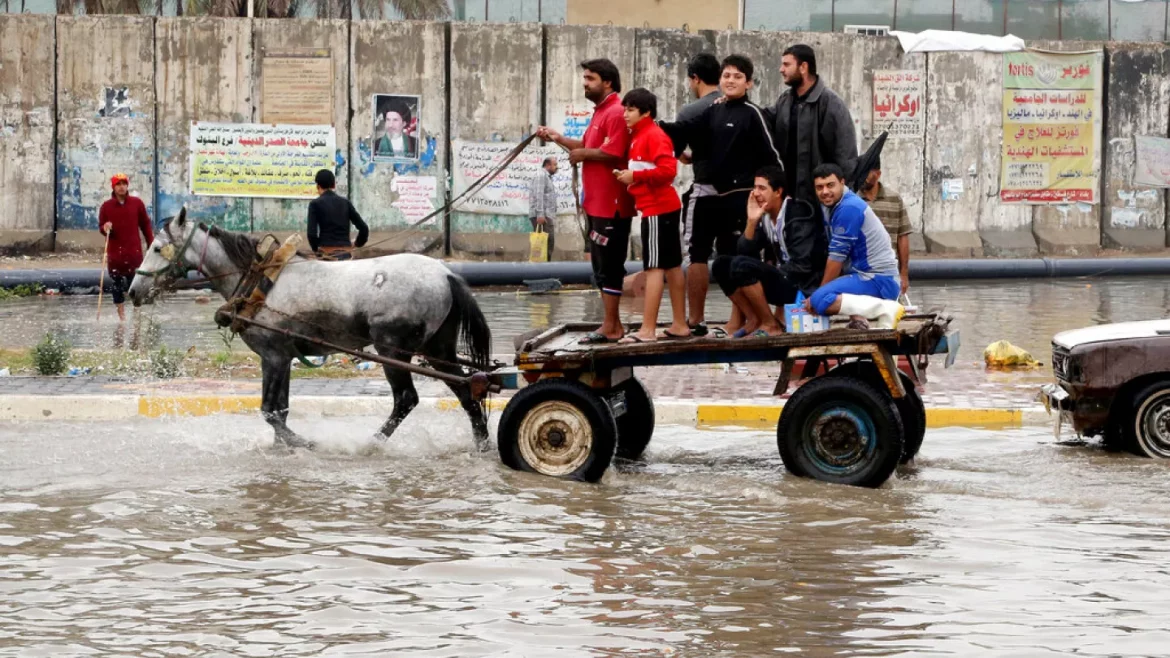Iraq suspends working hours amid heavy rainfall
Due to a lot of rain and severe weather, Iraqi government offices were closed on Monday.
Torrential downpours accompanied by strong windstorms and floods caused significant damage in the provinces of Baghdad, Anbar, Najaf, Diwaniyah, and Wasit on Sunday.
On Monday, the country’s Prime Minister Mohammed Shia’ al-Sudani directed the suspension of working hours in all provinces.
Many of the provinces experienced rising water levels, including Najaf, where homes, cars, stores, and places of business were all submerged.
In the worst-hit neighborhood, several families were compelled to leave their homes because of the sudden downpour. The historic Great Mosque of Kufa and the Najaf International Airport were also affected.
The suspension of working hours excludes security and service intuitions, according to a statement from the Iraqi government’s general secretariat.
Read Also: investments-in-renewable-energies-must-quadruple-to-meet-climate-target-irena
There have been no reported casualties.
Iraq is the fifth-most vulnerable nation in the world to the effects of climate change, including water and food insecurity.
Over the last 40 years, water flows from the Euphrates and Tigris, which provide up to 98 percent of the country’s surface water, have decreased by 30 to 40 percent, according to the UN.
Last year, low rainfall levels and high temperatures caused by climate change depleted water supplies across the country.
Much of Iraq’s agricultural lands depend on irrigation, but dams and reservoirs were at record-low levels in the summer of 2021. Seawater is pushing into southern lands due to low river water levels. The resulting soil salinity is threatening agriculture.
Iraq’s historic marshlands in the south are also drying up, while temperatures are soaring. The southern city of Basra recorded nearly 54°C in 2021.
Story adapted from Euronews
